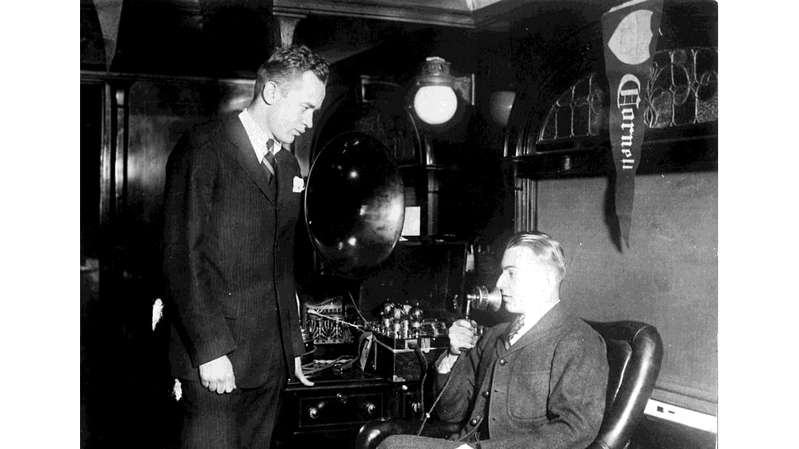
Radio engineering is successfully developing abroad
The world war of 1914-1918 generally slowed down the pace of progress around the world, but had an unusually favorable effect on the engineering industry such as radio engineering. According to American specialists, in the four years of the war, under the pressure of military demands, as much has been done in this area as would have been achieved in 20 years in peacetime.
While in our country the radiotelegraph transmission of speech, music, etc. at a distance without wires is spoken of as a rare phenomenon, and there is still not a single operating installation of this type that works regularly for public, and not only for technical purposes, in America, in Pittsburgh, a club of 400 radio players was formed, whose members in the evenings arrange “radiotelephone concerts” and so on.
In Washington, several debates on bills were conducted by radiotelephone. Meteorological bulletins are transmitted to farmers in the same way.
In Western Europe, the progress of radiotelephony is a little slower, but even there (in England) you can find advertisements for the sale of radiotelephones (150 shillings per set).
In France, near Bordeaux, apparently the most powerful radio station in the world opened its operation, the normal range of which is 20,000 kilometers, that is, half the circumference of the globe.
No less progress has been made in the field of radio reception. An example of compactness is the portable radio receiving station that appeared in England at the end of 1919, with all the devices enclosed in a portable box measuring 32x40x15 cm. a distance of several hundred kilometers from powerful European radio stations, time signals, the press (circular radio dispatches for placement in newspapers), etc.
Izvestia published an article on Western achievements in radio engineering on June 2, 1921.
The publication was prepared by Alexey Alekseev
Read also:

